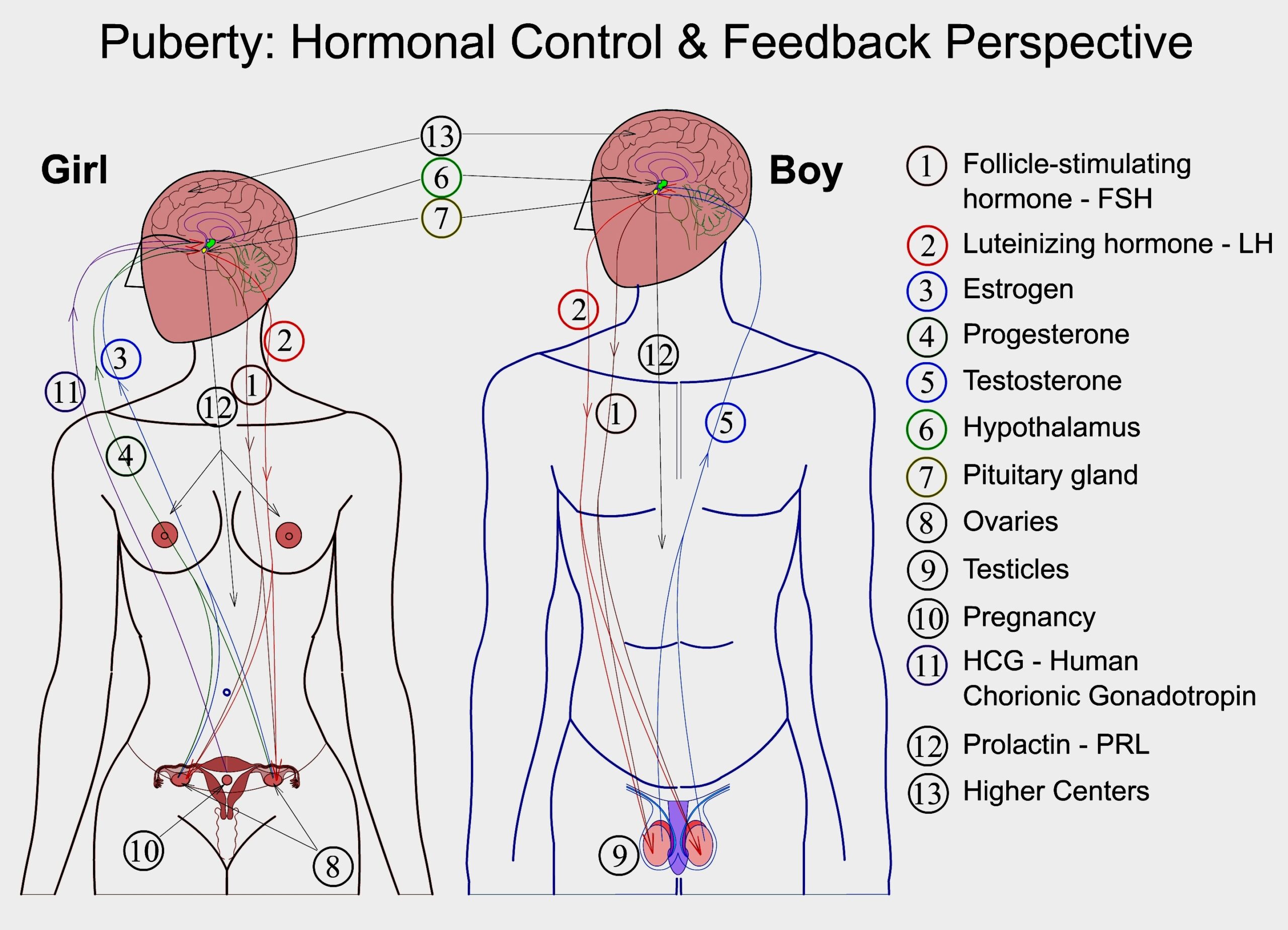Low Progesterone Symptoms– Progesterone is a crucial hormone that plays a vital role in a woman’s reproductive system. It is primarily produced by the ovaries after ovulation and helps prepare the uterus for implantation and maintain a healthy pregnancy. However, some women may experience low levels of progesterone, which can lead to various symptoms and complications. In this article, we will explore the causes, effects, and treatment options for low progesterone.
Understanding Progesterone
Progesterone is a hormone that belongs to the group of steroid hormones known as progestogens. It is predominantly produced by the corpus luteum, a temporary endocrine gland formed after ovulation. Progesterone prepares the uterine lining for implantation and promotes the development of blood vessels, essential for nourishing the growing embryo. It also helps maintain pregnancy by preventing the uterine muscles from contracting and potentially leading to miscarriage.
Causes of Low Progesterone
Several factors can contribute to low progesterone levels in women. These include:
- Anovulation: When a woman fails to release an egg during her menstrual cycle, it can disrupt the natural production of progesterone.
- Polycystic Ovary Syndrome (PCOS): PCOS is a hormonal disorder that can affect the regularity of ovulation and subsequently lower progesterone levels.
- Perimenopause and Menopause: As women age, their hormone levels naturally decline. During perimenopause and menopause, progesterone production decreases, leading to imbalances.
- Stress and Chronic Illness: Prolonged periods of stress or chronic illnesses can disrupt the delicate hormonal balance in the body, including progesterone production.
- Hormonal Medications: Certain medications, such as contraceptive pills and hormone replacement therapy, can interfere with natural progesterone levels.
Signs and Symptoms of Low Progesterone
Low progesterone can manifest through various signs and symptoms, including:
- Irregular Menstrual Cycles: Women with low progesterone may experience irregular periods, characterized by shorter or longer cycles.
- Heavy or Prolonged Bleeding: Menstrual bleeding may become heavier or last for an extended period due to inadequate progesterone levels.
- Premenstrual Syndrome (PMS) Symptoms: Low progesterone can exacerbate PMS symptoms such as mood swings, bloating, and breast tenderness.
- Infertility or Difficulty Conceiving: Inadequate progesterone can impact fertility by hindering proper implantation of a fertilized egg.
- Recurrent Miscarriages: Low progesterone levels during pregnancy can increase the risk of miscarriage.
- Fatigue and Mood Changes: Women with low progesterone may experience fatigue, anxiety, depression, or irritability.
Impact on Fertility and Pregnancy
Low progesterone levels can significantly impact fertility and pregnancy outcomes. Inadequate progesterone can make it difficult for a fertilized egg to implant in the uterus, leading to infertility or recurrent miscarriages. During pregnancy, progesterone plays a vital role in maintaining a healthy pregnancy by supporting the development of the placenta and preventing premature contractions. Monitoring progesterone levels and addressing any deficiencies are crucial for women planning to conceive or experiencing recurrent pregnancy loss.
Effects of Low Progesterone on the Body
Apart from fertility and pregnancy complications, low progesterone levels can have various effects on the body. These may include:
- Osteoporosis: Progesterone helps regulate bone density, and low levels can increase the risk of osteoporosis, especially during menopause.
- Sleep Disturbances: Hormonal imbalances, including low progesterone, can disrupt sleep patterns, leading to insomnia or restless sleep.
- Skin Changes: Some women with low progesterone may experience dry skin, acne breakouts, or other skin irritations.
- Weight Fluctuations: Hormonal imbalances can contribute to weight gain or difficulty losing weight, particularly in the abdominal area.
Diagnosing Low Progesterone
To diagnose low progesterone, healthcare professionals may perform the following tests:
- Blood Tests: A blood test can measure progesterone levels to determine if they fall within the normal range for a specific phase of the menstrual cycle.
- Hormone Panel: A comprehensive hormone panel may be conducted to assess the overall hormonal balance in the body.
Treatment Options for Low Progesterone
The treatment for low progesterone aims to restore hormonal balance and alleviate symptoms. Here are some common treatment options:
- Lifestyle Changes: Adopting a healthy lifestyle that includes regular exercise, stress management, and a balanced diet can support progesterone production.
- Natural Remedies: Certain herbs and supplements like chasteberry, vitamin B6, and magnesium can help boost progesterone levels naturally.
- Medications: In some cases, healthcare providers may prescribe medications like progesterone creams or oral supplements to supplement the body’s progesterone levels.
- Hormone Therapy: Hormone replacement therapy (HRT) may be recommended for women experiencing severe symptoms or going through menopause.
Conclusion
Low progesterone levels can have significant implications for a woman’s reproductive health and overall well-being. Understanding the causes, recognizing the symptoms, and seeking appropriate treatment are essential steps in addressing this hormonal imbalance. By consulting with healthcare professionals and making lifestyle changes, women can optimize their progesterone levels and improve their quality of life.
FAQs (Frequently Asked Questions)
- Can stress affect progesterone levels?
- While stress itself doesn’t directly affect progesterone levels, chronic stress can disrupt hormonal balance, including progesterone production.
- Can low progesterone cause weight gain?
- Hormonal imbalances, including low progesterone, can contribute to weight fluctuations, including weight gain.
- Is low progesterone always a sign of infertility?
- Low progesterone can impact fertility, but it is not the sole factor. Consulting with a healthcare professional can help determine the underlying causes of infertility.
- Are there any natural ways to boost progesterone levels?
- Yes, lifestyle changes, such as stress management, regular exercise, and a healthy diet, can support progesterone production. Certain herbs and supplements may also help boost progesterone levels naturally.
- Can low progesterone be treated during pregnancy?




